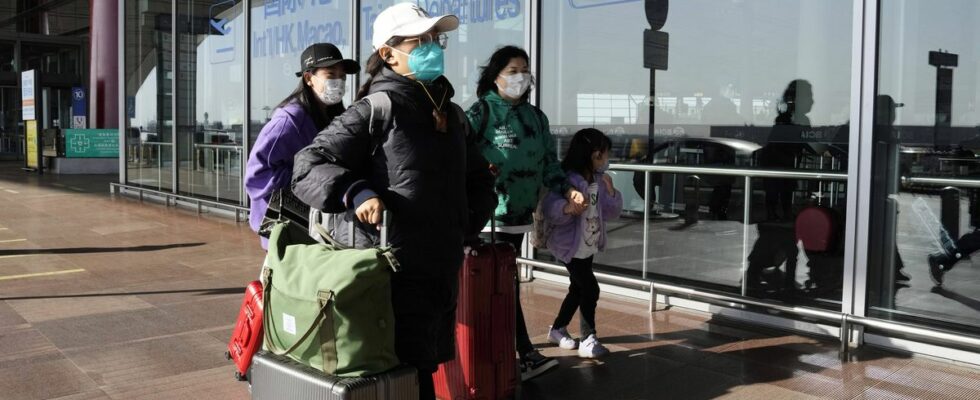The EU may judge these screenings useless, France will impose them. Travelers boarding in China bound for France will have to present a negative Covid-19 screening test at the start of their flight, the French government announced on Friday evening.
Faced with the explosion of cases of coronavirus infections in China, France joins Italy and Spain among the European countries imposing restrictions. At the same time, the British media announced that the United Kingdom was also going to impose screening.
Random tests on arrival
All travelers from China to France – by a direct flight or with a stopover – will have to bring proof of a negative test (PCR or antigen) of less than 48 hours on departure, a government source said during a press conference.
Other tests will be carried out on arrival on a random basis, the positive samples being the subject of sequencing in order to detect possible new variants of the virus. Travelers “will have committed” on departure to “self-isolate” if they test positive on arrival, the government source said.
In addition, wearing a mask will be compulsory on board flights departing from China to France. A decree by Prime Minister Elisabeth Borne on these restrictive measures will be published over the weekend “and notified to the European Commission and to the Member States of the EU”, indicates a press release from the government.
“Unwarranted” screening?
A growing number of countries, including the United States, European and Asian nations and Israel, have decided to impose controls on passengers coming from China, after Beijing lifted anti-Covid restrictions, a precaution deemed “understandable” by WHO.
A European health agency, the European Center for Disease Prevention and Control (ECDC), however, considered that the introduction of screening in the EU would be “unjustified”, given the level of immunity in Europe and the presence of the same variants of Covid-19 as in China.
Unreliable Chinese figures
Three years after the appearance of the first cases of coronavirus in Wuhan (center), China put an end to its draconian policy known as “zero Covid” on December 7.
Since 2020, it has allowed the population to be largely protected from the virus, thanks to generalized screening tests, strict monitoring of movements but at the cost of compulsory confinements and quarantines as soon as cases are discovered.
Since the lifting of restrictions, Chinese hospitals have been overwhelmed by a surge of sick people, most of them elderly, and vulnerable because they have been little or not vaccinated, while many pharmacies are short of fever medication.
“Since the outbreak of the epidemic, China has shared reliable information and data with the international community, including the WHO, in an open and transparent manner,” said a Chinese foreign ministry spokesperson. , Wang Wenbin.
On Friday, only 5,515 new cases and one death were announced by the Chinese Center for Disease Control and Prevention (CDC). Figures that no longer seem to reflect reality, however, as widespread screening is no longer mandatory.

